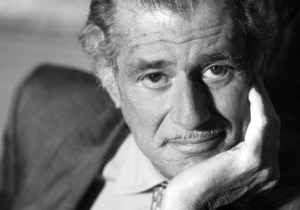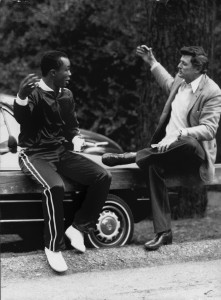 My list of admired journalists is short, requiring for inclusion a sharp intellect, a compassionate spirit and the ability to express those capacities in a way that moves hearts and minds. Some are excellent reporters who also care about elegant writing; others are subtly dazzling writers who also care about rigorous reporting.
My list of admired journalists is short, requiring for inclusion a sharp intellect, a compassionate spirit and the ability to express those capacities in a way that moves hearts and minds. Some are excellent reporters who also care about elegant writing; others are subtly dazzling writers who also care about rigorous reporting.
My list of admired sports journalists is shorter still — one name long — and that man died recently. Frank Deford, 78, was a mainstay on National Public Radio’s Morning Edition for 37 years and more than 1,600 commentaries, the last of which aired just weeks before his May 28 death.
Deford loved sports with a passion — he was a veteran writer for Sports Illustrated whose work sparkled just as brightly on radio and television — but he was not one of the paid fans who typically pass for sports journalists. He wasn’t content to belly up to the buffet in the press room and churn out simple gamers or adoring profiles of sports “heroes.”
Sure, his storytelling could break your heart or lift your spirits; Deford was a master at capturing the human drama of sport, the purity of individual struggle.

Deford interviewing boxer Sugar Ray Leonard.
Yet he refused to turn a blind eye to the less ennobling aspects of the athletes he profiled. And he never stopped critiquing the corrupt and corrupting multi-billion dollar sports entertainment industry in America, which raises troubling questions about its own values and those of the culture in which it prospers.
Deford looked closely, thought clearly and felt deeply. And he was able to synthesize those capacities into sometimes heretical commentary that appealed to people who aren’t sports fans, as well as those who are.
He regularly questioned the morality of an American culture that could be so obsessed with a sport as brutal as football. Deford also criticized a lack of diversity in the Olympics, once calling the Winter Games “almost all white athletes being watching by almost all white people.” In the 2013 NPR commentary below — one of his favorites — he lambasted American universities that sacrifice academic integrity to athletic victory by admitting and then protecting students for their prowess on the field, not in the classroom.
https://dl.dropboxusercontent.com/s/a7ewx3pvke644vt/deford.mp3
While best known to a general audience for his NPR commentaries, Deford was known to sports fans primarily for his writing, particularly the psychologically nuanced profiles that earned him a National Magazine Award and — six times — recognition as U.S. Sportswriter of the Year.
“He sought to grasp how sports were an inescapable part of the American soul, an emblem of loyalty, aspiration and, all too often, heartbreak,” wrote Matt Schudel in a Washington Post tribute.
In 2013, Deford’s richly contextualized, elegant work made him the first sports journalist to receive the W.M. Kiplinger Award for Distinguished Contributions to Journalism, the National Press Foundation’s highest honor. That same year, he received a National Humanities Medal that recognized him as a literary journalist who transformed the way Americans think about sports.
“A dedicated writer and storyteller, Mr. Deford has offered a consistent, compelling voice in print and on radio, reaching beyond scores and statistics to reveal the humanity woven into the games we love,” President Barack Obama said in bestowing the award.
Deford also penned multiple screenplays and authored 18 books, of which one — his most personal — became my introduction to the man. I was a rookie writer in my first newsroom not long after Deford’s book Alex: The Life of a Child was published in 1983. It’s the story of his daughter’s struggle with cystic fibrosis, which killed her when she was 8. Although I can’t recall the particulars of my phone interview with Deford, his unflinching description of the disease and of Alex’s death stayed with me.
Decades later, it was the reach of this book that mattered most to him, the fact that people still brought it to his public appearances for him to sign, that they still wrote to him about it. He cared that his little girl’s life mattered — the book and a movie based on it drew needed attention and money to cystic fibrosis research — and that she was remembered.
And she is, because of the power of his words, the clarity of his mind and the brave heart it took to tell that sometimes painful story. Qualities for which I’ll remember and miss Frank Deford, knowing we’ll not see his like again.
Sports Illustrated has archived some of Deford’s best writing here.
Advertisements Share this:





